

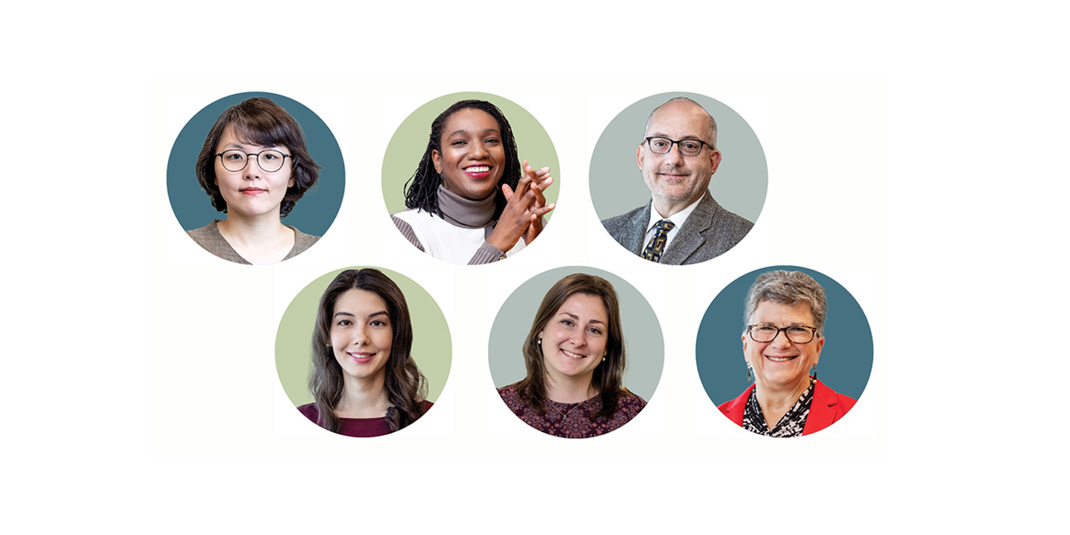
Six new educators—Eunji Cho, Thamarah Crevecoeur, Raymond Gasser, Ashley Longacre, Aimee Milliken, and Karen Pounds—join CSON’s faculty.
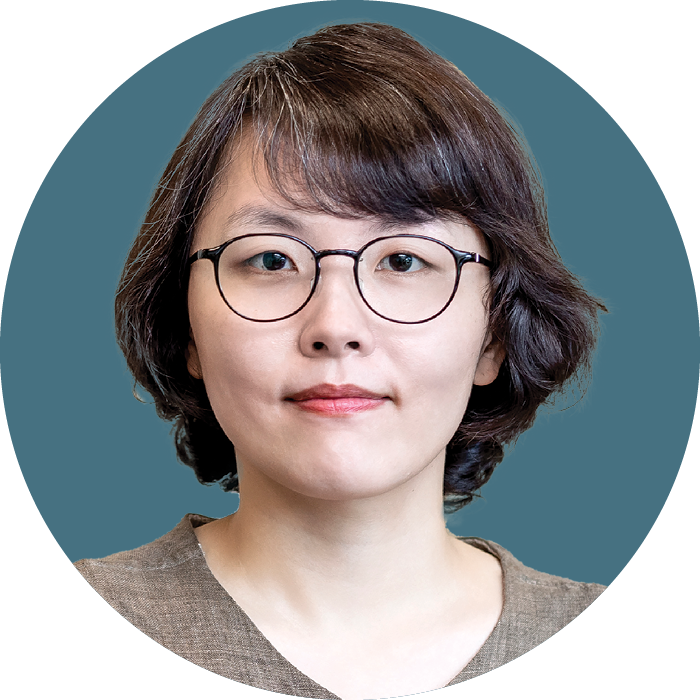
Nursing researcher focused on promoting the psychosocial well-being of children, adolescents, and young adults with serious illnesses
Ph.D., nursing science, Duke University School of Nursing (2020); M.S.N., Korea University (2013); B.S.N., Korea University (2008)
Postdoctoral fellow, Vanderbilt University School of Nursing (2020–2022); registered nurse, inpatient pediatric oncology, Seoul (2008–2010)
Nursing Assessment of Health Across the Lifespan*
(* co-taught course)
Movies, video games, baking, reading (“I love Anne of Green Gables and Little Women”)
“I believe the goal of health care should be human flourishing. During my doctoral program, I focused on developing a conceptual framework of flourishing—or complete well-being—in adolescents and young adults with cancer. I believe flourishing individuals tend to make positive impacts on their surroundings and evoke other people’s well-being. My research found that nurses are well positioned to promote flourishing in this population. I designed a dyadic nurse-patient storytelling intervention [where each shares their life story] to find meaning in their relationship. Eventually, I want to implement this storytelling idea in clinical and community settings and help young people move forward after cancer diagnosis and treatment. I also love teaching, and I want to help students develop their own ways toward flourishing.”
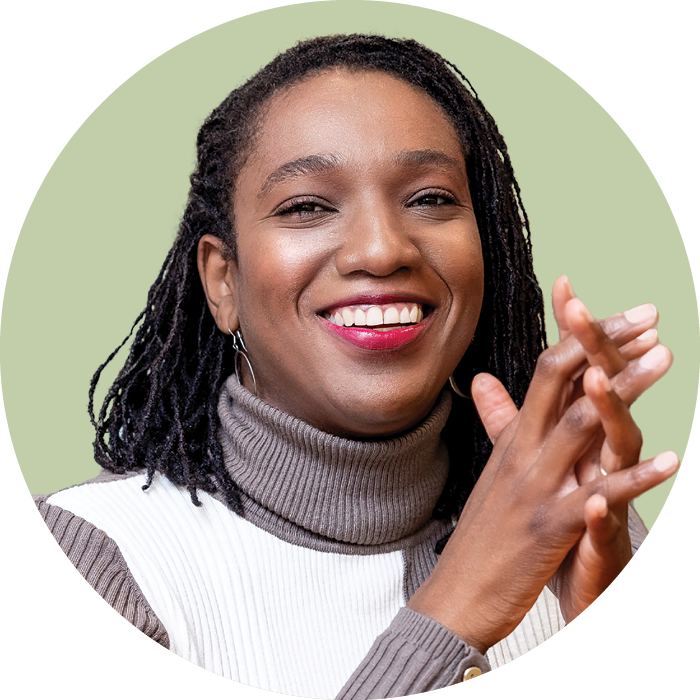
Certified nurse-midwife specializing in immigrant maternity health, especially for the Haitian population
D.P.H., Boston University School of Public Health (2021); M.S.N., concentration in midwifery and women’s health, University of Pennsylvania (2007); B.S.N., Boston College (2006)
Clinical assistant professor, Department of Obstetrics & Gynecology, Boston University School of Medicine (2017–22); clinical instructor at BU (2009–2017); certified nurse-midwife, Boston Medical Center (2009–2022)
Women’s Health/Gender-Related Advanced Practice Nursing I*; Childbearing Nursing Theory*; Population Health Nursing Theory*
(* co-taught courses)
Playing with her toddler son, traveling, running, attending church
“I’ve always been a teacher. After graduating from midwifery school, my first job was teaching labor and delivery skills in Haiti. My experience working in Haiti and with the Haitian immigrant population here is that we have worse outcomes in maternity care. I want to understand why, and what the health care system can do to improve them. I immigrated to the U.S. from Haiti, and I have personally experienced poor maternity outcomes, having lost my baby at 24 weeks. My doctoral research at Boston Medical Center found that Haitian immigrant women face lots of barriers to good maternity care. They need help with social determinants of health, like transportation, housing, childcare, and access to insurance. They appreciate having a provider who speaks their language or is from their culture. And they appreciate respectful care.”
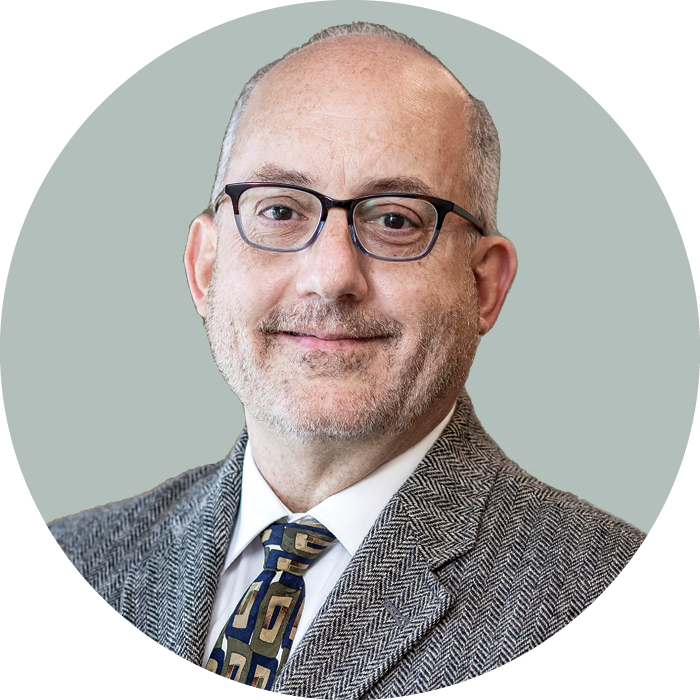
Psychiatric mental health nurse practitioner with a focus on trauma-informed care, primary care, and computer science/data visualization
D.N.P., with concentrations in psychiatric mental health (PMHNP) and primary care family (PCFNP), Louisiana State University Health Sciences Center New Orleans (May 2022); B.S., nursing, UMass Boston (2011); M.S., computer science, Louisiana Tech University (1992); B.S., computer science, LTU (1990)
Emergency department staff nurse, Slidell Memorial Hospital (2018–19); staff nurse, cardiology and ED units in Vermont (2012–2016); senior graphics programmer/analyst, Boston University Scientific Computing and Visualization Group (2001–2010); U.S. Navy Reserve and Louisiana Army National Guard (1986–1990)
Population Health Nursing Theory*; Psychiatric Mental Health Nursing Theory*
(* co-taught courses)
Backpacking and performing magic tricks for young patients in the ED
“I hope to bring more technology into nursing to better serve our patients and profession. Nurses need to be able to understand patient health data. By using tools from data and computer science, one can ask and answer important questions that can drive nursing research and practice. Another passion of mine is adolescent psychiatry. My D.N.P. clinical research project involved implementing a trauma-informed care protocol in an inpatient adolescent psychiatric setting. I helped mental health techs understand that their patients were not misbehaving children, but rather young people who had suffered trauma, often severe. The patients wanted help, acceptance, and love but didn’t know how to ask. Building therapeutic relationships through compassionate care, mutual trust and respect, and active listening is basic nursing—and really all that was needed.”
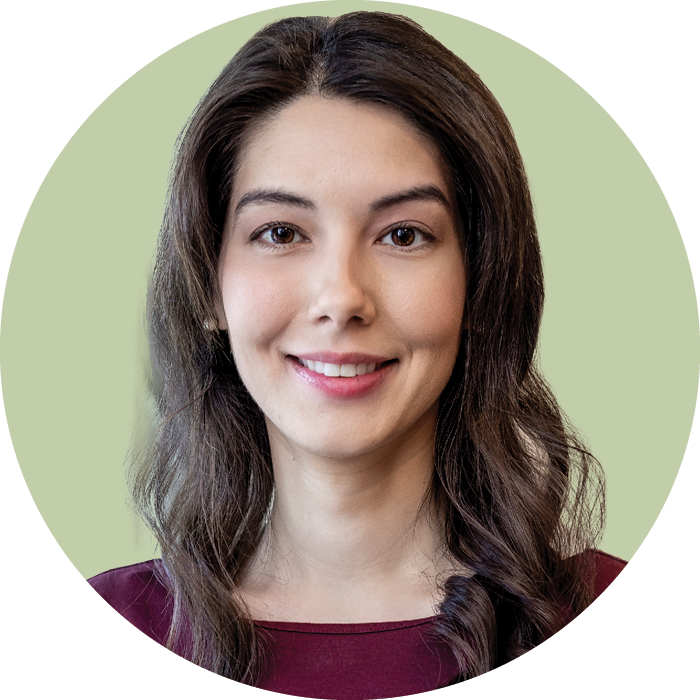
Epidemiologist with expertise in public health, cancer prevention, nutrition, substance use, and research methods (e.g., statistics, survey design)
Ph.D., nutrition and health sciences, Emory University (2018); M.P.H., physical activity in public health, George Washington University (2012); B.A., biological anthropology and anatomy, Duke University (2010)
Epidemiologist with the Bureau of Substance Addiction Services of the Massachusetts Department of Public Health and JSI Research and Training Institute; lecturer, Tufts University Department of Community Health (2019–2022)
Epidemiology, undergraduate; Epidemiology*, graduate nursing; Public Health in a Global Society*
(* co-taught courses)
Playing with her infant son, being outdoors, reading, cooking, baking
“I like to tell my students, ‘You can apply epidemiology skills to basically any public health problem you want.’ I think most people understand, because of COVID, that epidemiology is everywhere. I’m excited to show them case studies, have them do group projects on diseases or conditions they’re interested in, and dive into the literature to understand how incidence and prevalence, risk factors, and study design all come into play to shape clinical knowledge. I think nurses need “epi” knowledge to inform what happens in the clinic. Knowledge is always changing, and knowing how to read a journal article—including the methods section—is a skill everybody should have. You’ve got to know how to interpret and apply the research.”
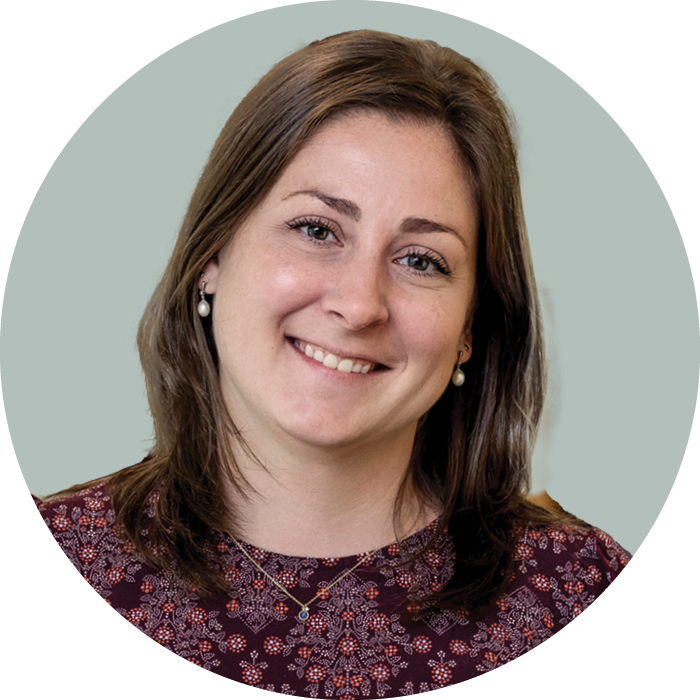
Nurse and ethicist; co-editor of Clinical Ethics Handbook for Nurses (2022) with Associate Professor Pamela Grace
Ph.D., nursing, with a dissertation on the development of Ethical Awareness Scale, Boston College (2017); M.S.N., Yale University (2014); B.S.N., University of New Hampshire (2009)
Executive director, Ethics Consultation Service, Brigham and Women’s Hospital (BWH, 2020–2022); clinical ethicist and nurse scientist at BWH (2019–2020); adjunct faculty member in bioethics, Harvard Medical School (2018–2022); Wiese Postdoctoral Fellow in Clinical Ethics, BWH (2017–2019); critical care nurse (2009–2019)
Health Care Policy for Nursing Leaders; Nursing Ethics and Professional Responsibility in Advanced Practice*; Population Health Principles, Program Planning, and Evaluation*
(* co-taught courses)
Family time with husband and toddler son, running, traveling
“Ethics underlies everything we do as nurses. My clinical background got me interested in ethics, because as a critical care nurse, you see lots of complicated situations around end-of-life decision making and disagreements over the right thing to do for the patient. Those situations left me with a feeling of moral distress. These issues come up incredibly often, but we [clinicians, patients, families] typically don’t realize we have an ethical problem until it is a crisis. I’m passionate about helping nurses develop ethical awareness so we can identify ethical dilemmas earlier and take action to resolve them: ‘I see this patient situation is ripe for conflict, and I’m going to intervene early so we prevent it from escalating and make sure we provide the best possible care.’”
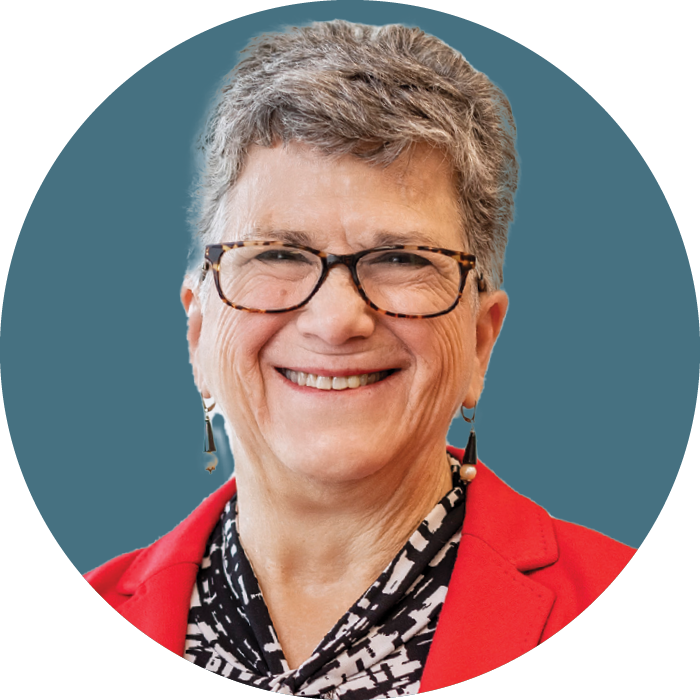
Psychiatric clinical nurse specialist focused on the therapeutic relationship and telepsychiatry
Ph.D., nursing, University of Rhode Island (2008); M.S., adult psychiatric/mental health nursing, Boston College (1983); B.S., nursing, University of Rhode Island (1978); pursuing PMHNP certification from UMass Amherst (expected 2023)
Faculty appointments at UMass Dartmouth College of Nursing and Health Sciences (2019–22) and Northeastern University (2007–2019); researcher at McLean Hospital (2009–2016); psychiatric clinical nurse specialist at Boston Medical Center (2014–2021) and other institutions (since 1983)
Psychiatric-Mental Health Advanced Practice Nursing Across the Lifespan, I and III; Individual Psychotherapy for Advanced Practice Nurses
Practicing yoga, playing the clarinet
“I’m interested in the therapeutic relationship between patient and nurse. That theme has cut across my research, whether it’s been with individuals with persistent and severe mental illness, autism, or mood disorders. We can’t underestimate the importance of the therapeutic relationship. That’s how growth and change happen. I’m especially interested in understanding, from a nursing perspective, the impact of telepsychiatry on that relationship—because you’re not seeing the whole person. But telepsychiatry has helped bridge the gap for rural and underserved populations, and of course, helped during the pandemic. There’s been a drive to take away the stigma of saying you have a mental illness or are seeing a therapist, which is just wonderful.”